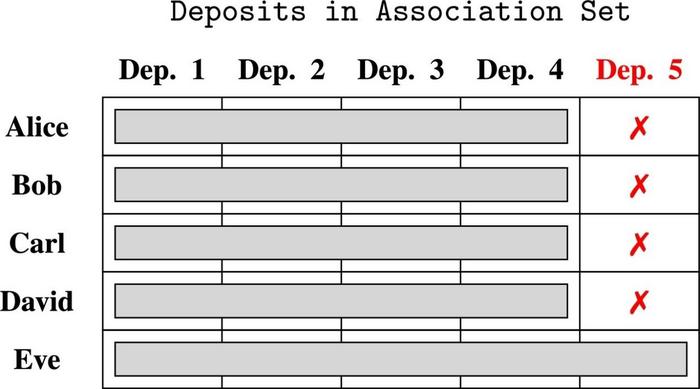Blockchain’s inherent transparency, while beneficial for validation and trust, poses significant privacy concerns. Traditional transactions on public blockchains are permanently visible, compromising user privacy. This visibility has been a double-edged sword, providing transparency but at the cost of personal data exposure. A new protocol called Privacy Pools offers a potential solution to the seemingly contradictory goals of blockchain privacy and regulatory compliance.

Credit: Blockchain: Research and Applications
Blockchain’s inherent transparency, while beneficial for validation and trust, poses significant privacy concerns. Traditional transactions on public blockchains are permanently visible, compromising user privacy. This visibility has been a double-edged sword, providing transparency but at the cost of personal data exposure. A new protocol called Privacy Pools offers a potential solution to the seemingly contradictory goals of blockchain privacy and regulatory compliance.
In a recent study ( doi: https://doi.org/10.1016/j.bcra.2023.100176 ) published in Blockchain: Research and Applications on 21 February 2023, contributed by Vitalik Buterin (co-founders of Ethereum), Jacob Illum, Matthias Nadler, Fabian Schär, and Ameen Soleimani. The researchers have developed a protocol called “Privacy Pools” that enhances privacy on blockchain transactions while complying with regulatory standards. This new smart contract-based protocol enables users to prove specific attributes of their transactions without exposing their entire history, maintaining both privacy and transparency.
The “Privacy Pools” protocol introduces a novel approach by allowing users to publish zero-knowledge proofs. These proofs confirm whether their funds are associated with lawful or unlawful sources without revealing their entire transaction history. This method involves proving membership in pre-defined association sets, aligned with regulatory frameworks, thus separating compliant from non-compliant transactions.
“This study offers a promising approach to reconciling the seemingly conflicting goals of blockchain privacy and regulatory compliance,” said Dr. Fabian Schär, the corresponding author of this article. “By enabling users to prove compliance without revealing their entire transaction history, Privacy Pools could pave the way for a more privacy-preserving and inclusive blockchain ecosystem.”
The “Privacy Pools” protocol offers a pragmatic solution to the long-standing challenge of maintaining privacy in blockchain transactions while meeting regulatory requirements. This innovation not only enhances user privacy but also strengthens the integrity and trustworthiness of blockchain technology. It demonstrates that privacy and regulatory compliance can coexist, paving the way for more secure and private financial transactions in the digital age.
###
References
DOI
10.1016/j.bcra.2023.100176
Original Source URL
https://doi.org/10.1016/j.bcra.2023.100176
About Blockchain: Research and Applications
Blockchain: Research and Applications is an international, peer reviewed journal for researchers, engineers, and practitioners to present the latest advances and innovations in blockchain research. The journal publishes theoretical and applied papers in established and emerging areas of blockchain research to shape the future of blockchain technology.
Journal
Blockchain Research and Applications
DOI
10.1016/j.bcra.2023.100176
Subject of Research
Not applicable
Article Title
Blockchain privacy and regulatory compliance: Towards a practical equilibrium
Article Publication Date
21-Feb-2024
COI Statement
The authors declare that they have no competing interests



